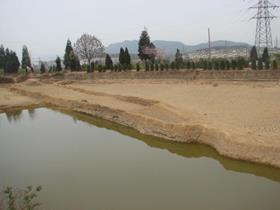
Recent rains across Sichuan, Chongqing, Guizhou and Guangxi provinces have eased the drought that has been gripping southwest China for several months, but the story in Yunnan is quite different, with most of the province still parched.
According to local sources interviewed by Fruitnet.com, Yunnan Province has not received any rainfall for eight months, and some accounts have described the drought as the worst in 100 years.
“The drought here in Yunnan has been and continues to be serious,” confirmed Lew Dagger of fruit marketing company Fresh Yunnan. “Rainfall was down last summer and although the winter is the typical dry period, some rain is usually experienced during that period, but there hasn’t been any rain since September.”
Yunnan’s agriculture sector has been hard-hit, with tobacco, rice and corn bearing the brunt of the damage. Cash crops such as coffee and tea have also been severely affected, while an estimated 12m livestock are also lacking sufficient water.
Local company Praxis develops and advises on fruit-related projects in Yunnan as well as exporting solo garlic (single clove). According to the company’s Faraz Mani, the impact of the drought varies across the province, but it has contributed to a hike in prices for some fruit and vegetables.
“Some areas are worse hit than others due to the fragmented topography of the region and the direction of river flows,” he explained. “Areas such as central Yunnan have had their entire crops decimated by the drought. Some fruit and vegetable crops have doubled in price as a result.”
However, Mr Mani said fruit and vegetable price increases are not only attributable to the drought. “Money supply, due to the stimulus package implemented last year, has also contributed somewhat,” he noted. “There’s a direct impact as purchasing power increases and an indirect impact with the costs of labour and other inputs.”
The Chinese table grape season is due to kick off in Yunnan in late June, but Mr Mani does not envisage any major disruption to supplies. “The area that grows grapes (Binchuan), although itself one of the driest areas in Yunnan, should have sufficient water supplied by a large lake in an adjacent valley,” he predicted.
However, Mr Dagger expects the impact on upcoming fruit crops such as pears and persimmons, whose seasons commence in August, to be significant. “Although pollination for crops like pears and persimmons was good given the calm weather, I have seen quite a big fruit crop and we can only assume that fruit size is going to be down,” he said. “This will impact on values and therefore returns.”
Indeed, he said the drought is significantly affecting the livelihoods of farmers across the province. “Many villages in the province are without water and this has resulted in villagers having to walk long distances to get water for day-to-day use or tankers having to be used,” Mr Dagger noted. “In urban areas, there’s been a significant amount of fundraising taking place in schools, factories and government offices. This is being used to put down new wells and give them what support they can.'
With farmers’ incomes looking set to be crimped for 18 months, the local government is very focused on the issue, according to Mr Dagger. “Clearly, this is a serious situation for rural economy and will set it back,” he said. “Rain in the next two weeks is vital if there is to be any recovery this year for the farmers.”



